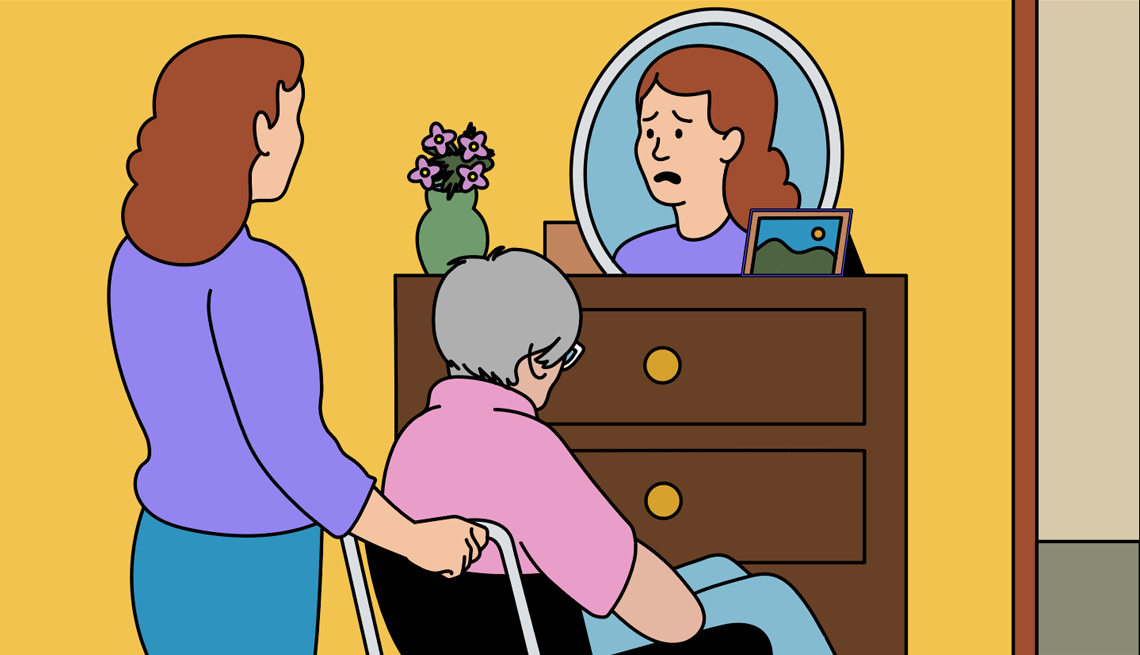AARP Hearing Center


On a hot June day in 2010, I packed up the last box with the possessions of my mother and stepfather and then asked them to excuse me for an hour. I drove to a sandwich shop a few miles from their South Florida condo mainly to clear my mind and think. As I sat there lingering over a large turkey sub, staring out the storefront window at the moving traffic, I talked to myself:
“Your mother is frail. Your stepfather has advanced Alzheimer’s dementia. You and your wife are moving them to an apartment a mile from your home in Pennsylvania so the two of you can take care of them. This is likely to go on for years and change your lives. Are you ready for this?”
Fourteen years later, I remember this — what I think of as a “gut-check” moment — as the start of the seven-year caregiving journey that was harder than I expected and changed our lives much more than I could have guessed. It was the first of many gut-check moments during caregiving that is still vivid in my mind. Another was the first time I had to calm my severely agitated stepfather who was storming angrily around the apartment making threatening gestures. Yet another, much later, was sitting vigil at my mother’s bedside while she was breathing raggedly in the last hours of her life. Facing what were new challenges for me was like trying to steady my nerves while looking down from a very high diving board. These times were personal tests when I needed to gather myself, find courage and take the plunge.
For some caregivers, facing these types of challenges comes easier, almost as a matter of course. For those like me, however, caregiving is a series of little moments when we need to reach for something within ourselves that we’re not sure is there in order to do what is necessary.
How can caregivers best handle their own gut-check moments? It depends less on the innate talents and abilities they have or the coping methods they typically rely on than the attitudes and beliefs they bring to caregiving. Here are some ideas for those attitudes and beliefs that may be helpful:
Adopt a “growth mindset”
Stanford university psychologist Carol Dweck has written extensively about people who believe that if they focus, work hard and open up to new learning, they can improve themselves. She said they have a “growth mindset” — essentially, the belief that they can grow to meet new challenges, even ones that initially seem too difficult for them. This concept can be readily applied to family caregiving.




































































More From AARP
Feeling Angry as a Family Caregiver? You Are Not Alone
How to acknowledge and deal with challenging emotionsHow Caregivers Can Deal With Nosy Neighbors
Learn ways to brush off unsolicited input and adviceDoctor, Why Am I So Tired?
How to get your energy backRecommended for You